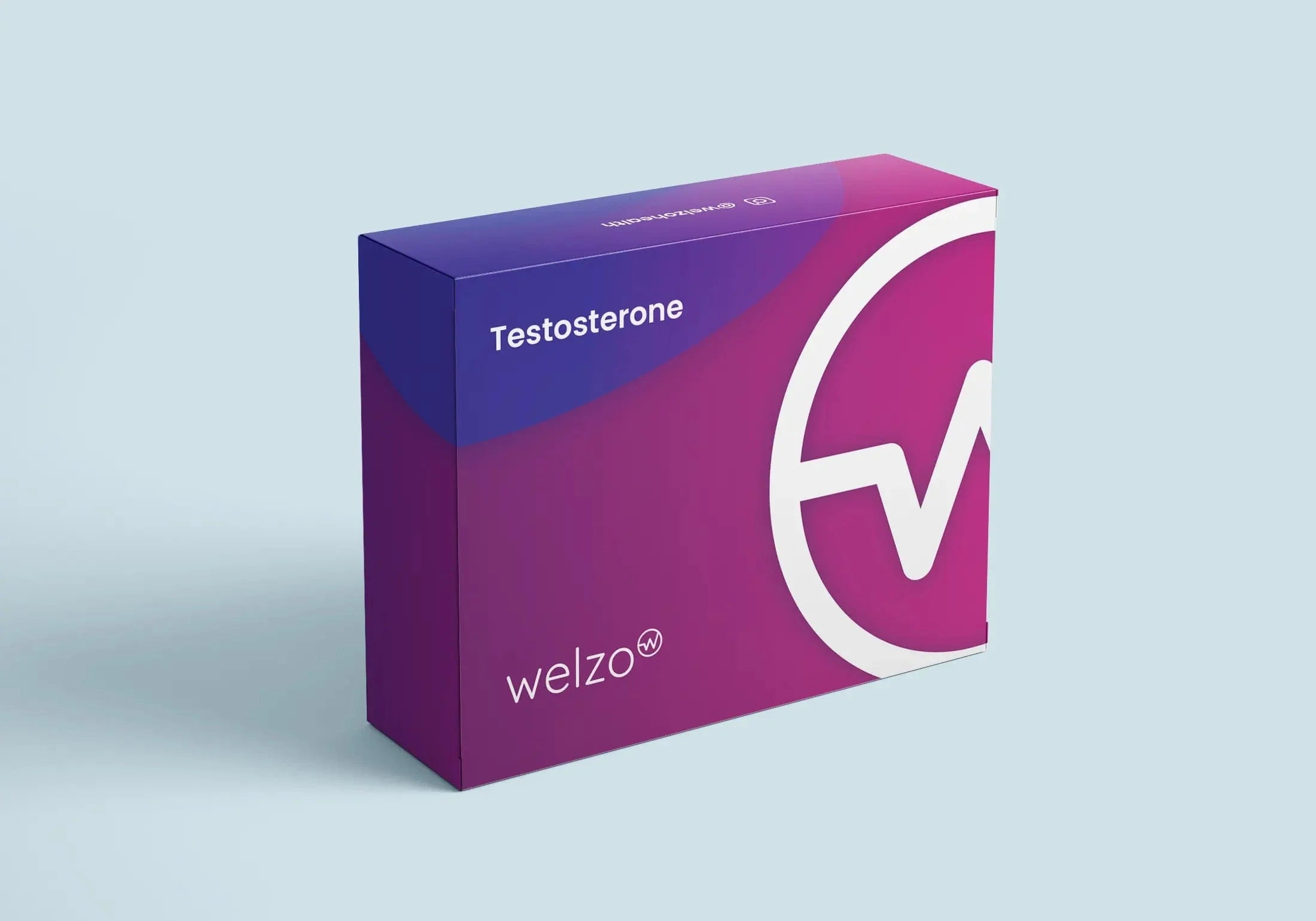Lifestyle Changes to Naturally Boost Testosterone Levels


Testosterone begins its journey of significance right from the embryonic stages. It's responsible for the development of male reproductive tissues such as the testes and prostate. In the adult male, testosterone plays a pivotal role in building muscle mass, increasing bone density, and stimulating the production of red blood cells. Beyond its physiological roles, testosterone is equally important for psychological health, impacting mood, confidence, and cognitive abilities. "Without adequate testosterone, men can experience fatigue, reduced libido, and even depression", states Dr. James Thompson, a leading endocrinologist in the UK.
Delving deeper into the influence of testosterone on health reveals a spectrum of benefits. It's not just about muscle strength or libido. Sufficient testosterone levels are linked with lower risks of cardiovascular diseases, diabetes, and obesity. Moreover, adequate levels help in maintaining optimal metabolic rates and fat distribution. "A well-balanced testosterone level is a reflection of good health and longevity," emphasises Dr. Caroline Foster, a renowned hormone specialist from the UK.
As men age, there's a natural decline in testosterone levels. Starting from the age of 30, most men experience a 1% decrease in testosterone levels yearly. This decline, often referred to as 'andropause', is accompanied by symptoms like reduced muscle mass, increased fat storage, decreased libido, and changes in mood. Ageing and its association with declining testosterone is a natural phenomenon, and understanding it can help in effective management, comments Dr. Alan Mitchell, a gerontologist based in the UK.
External factors can create a substantial impact on testosterone levels. Medications like opioids, steroids, and certain antifungal and antipsychotic drugs can influence testosterone production. Illnesses, especially chronic conditions such as liver or kidney disease, can also impede its production. Stress, a prevalent issue in our modern world, increases cortisol levels, which inversely affects testosterone production. "It's imperative to understand the external triggers affecting our hormonal balance," remarks Dr. Sarah Nicholson, a specialist in hormonal disorders from the UK.
Our environment, polluted with toxins, plays a sinister role in affecting testosterone levels. Chemicals like BPA, commonly found in plastic containers, and phthalates, used in personal care products, can disrupt endocrine function. This disruption can consequently lead to reduced testosterone levels. "The environment we dwell in often reflects our internal hormonal milieu," says Dr. Greg Fitzgerald, a UK-based environmental health expert.

Buy Testosterone Blood test online here.
Dietary fats, particularly monounsaturated and saturated fats, play a role in testosterone production. Healthy fats from sources like avocados, nuts, olive oil, and fatty fish can boost testosterone levels. "Dietary fats are the precursors for testosterone synthesis," explains Dr. Patricia Evans, a UK-based nutritionist.
Micronutrients are the unsung heroes in testosterone production. Zinc, an essential trace element, and Vitamin D, commonly known for its role in bone health, are critical. Deficiencies in these micronutrients can lead to reduced testosterone levels. Oysters, beans, and dairy are excellent sources of zinc, while sunlight exposure and fortified foods can increase Vitamin D levels. "A micronutrient-rich diet is paramount for hormonal health," states Dr. Lawrence Green, a dietician based in the UK.
Foods rich in Vitamin D, zinc, and healthy fats should be embraced. Concurrently, it's vital to limit or avoid alcohol, excessive caffeine, and processed foods laden with sugars and unhealthy fats. These can diminish testosterone levels and adversely affect overall hormonal balance. "What we consume directly influences our internal biochemistry," notes Dr. Rebecca Hughes, a UK-based food scientist.
Caloric intake and its distribution through techniques like intermittent fasting can influence testosterone levels. Overeating or excessive calorie restriction can reduce testosterone levels. However, intermittent fasting, when practised judiciously, can enhance testosterone production due to the balance it creates between feeding and fasting states. "Fasting stimulates certain hormonal pathways that can be beneficial for testosterone production," says Dr. Adrian Bell, a UK-based metabolic health expert.
Exercise is a powerful driver in the quest for optimal testosterone levels. Diverse exercises, ranging from high-intensity interval training (HIIT) to strength training, can significantly elevate testosterone levels. Compound movements like squats, deadlifts, and bench presses engage multiple muscle groups, inducing a more substantial testosterone release. "Choosing a diverse exercise routine can ensure a consistent testosterone boost," advises Dr. Nathan Reid, a sports scientist from the UK.
Resistance training, especially when using heavy weights, is the golden rule for testosterone enhancement. Lifting weights stimulates muscle growth, and this process demands higher testosterone production. Furthermore, short rest intervals between sets can amplify the effect. Dr. Elizabeth Warner, a renowned fitness expert in the UK, opines, "Incorporating resistance training into one's weekly routine can pave the way for a robust testosterone profile."
While the emphasis is often on weightlifting for testosterone, cardiovascular exercises have their merit. Moderate cardio can enhance heart health and improve blood circulation, promoting hormone distribution throughout the body. However, a fine balance is crucial. "Cardio, in moderation, complements testosterone-boosting efforts, but it shouldn't overshadow strength training," asserts Dr. Robert Lewis, a cardiovascular fitness specialist from the UK.
Exercise, when overdone, can be counterproductive. Overtraining can lead to fatigue, injury, and, notably, a dip in testosterone levels. This phenomenon happens due to increased cortisol, a stress hormone that inversely affects testosterone. "Understanding one's body limits is essential. More doesn't always mean better," warns Dr. Hannah Graham, a UK-based physiologist.
Sleep is the unsung hero of the endocrine system. During deep sleep phases, the body engages in various recovery processes, including testosterone production. This hormone sees its peak production during the REM stages of sleep. "Prioritising sleep is synonymous with prioritising testosterone health," insists Dr. Ian Fletcher, a sleep researcher based in the UK.
For most adults, especially men, 7-9 hours of sleep is the sweet spot. Regularly achieving this sleep duration can optimise testosterone levels and overall health. Dr. Rachel Stevens, a sleep specialist from the UK, states, "Consistent, restful sleep of 7-9 hours can set the stage for optimal testosterone production."
Sleep deprivation wreaks havoc on the body, impacting everything from cognitive functions to hormonal health. A consistent lack of sleep can lead to a significant drop in testosterone levels, which in turn affects muscle growth, mood, and libido. "The ramifications of sleep deprivation go beyond fatigue; it directly impinges on our hormonal equilibrium," alerts Dr. Simon Carter, a UK-based endocrinologist.
Cortisol, often termed the 'stress hormone', has an inverse relationship with testosterone. Chronic stress elevates cortisol levels, suppressing testosterone production in the process. "Maintaining a harmonious cortisol-testosterone balance is pivotal for health, making stress management non-negotiable", elaborates Dr. Emily Turner, a stress therapist from the UK.
Adopting stress-reducing techniques such as deep breathing exercises, regular physical activity, and time management can work wonders. Furthermore, engaging in hobbies and ensuring a work-life balance are also beneficial. "Finding a personalised stress-reducing technique is as crucial as any medical intervention," opines Dr. Alan Brooks, a UK-based psychologist.
Mindfulness and meditation have emerged as potent tools against stress. Regular meditation can significantly lower cortisol levels, fostering an environment conducive for testosterone production. "Mindfulness doesn't just benefit the mind; it directly nurtures hormonal health," shares Dr. Laura Webb, a UK-based meditation practitioner.
Alcohol, especially when consumed excessively, suppresses testosterone production. Chronic alcohol consumption can lead to testicular atrophy, reduced libido, and decreased muscle mass. "While occasional alcohol consumption is acceptable, habitual drinking can cripple testosterone health", warns Dr. Peter Marshall, a UK-based addiction specialist.
Various recreational drugs, including marijuana and opioids, can influence testosterone levels. Chronic use can lead to diminished testosterone production, adversely impacting reproductive health. "The allure of recreational drugs should be weighed against their long-term effects on hormonal health," says Dr. Rebecca Ellis, a UK-based pharmacologist.
Certain prescription medications, like corticosteroids and opiates, can adversely affect testosterone levels. When prescribed these medications, it's crucial to understand their potential side effects and engage in regular monitoring. "Being proactive and discussing potential hormonal implications of medications with your GP is crucial," advises Dr. Richard Adams, a UK-based general practitioner.
Obesity has risen as a major health concern, not just for its immediate effects but also for its influence on hormone levels. Excessive body fat, particularly visceral fat, contributes to reduced testosterone levels. This adipose tissue can convert testosterone to oestrogen, effectively decreasing the amount of available testosterone. "Being overweight, particularly in the abdominal area, can have a domino effect on testosterone health," states Dr. Lisa Franklin, a UK-based endocrinologist.
Metabolic syndrome, characterized by a combination of conditions such as high blood pressure, high blood sugar, and increased body fat, has been linked to reduced testosterone levels. This syndrome can disrupt hormonal balance and create an environment less conducive to testosterone production. "Understanding the interconnectedness of metabolic health and testosterone is vital for overall well-being", mentions Dr. Henry Clarkson, a UK-based metabolic health expert.
Attaining and preserving a healthy weight encompasses a holistic approach. This includes a balanced diet, rich in whole foods, regular exercise, and adequate sleep. Incorporating strength training, prioritizing protein intake, and avoiding excessive processed foods are pivotal. "Every step towards a healthier weight directly translates to better hormonal health," asserts Dr. Vanessa Reid, a UK-based nutritionist.
Herbal supplements have piqued interest in recent years, with many touting benefits for testosterone enhancement. Fenugreek, for instance, has compounds believed to boost testosterone levels. Tribulus terrestris, while popular, has shown mixed results in studies. Tongkat ali, on the other hand, might elevate testosterone levels, especially in men with low levels. "While herbs like tongkat ali show promise, one should always approach herbal supplements with a discerning eye", suggests, Dr. Oliver Spencer, a UK-based herbalist.
Natural testosterone boosters can be considered when facing mild drops in testosterone levels, particularly due to ageing or minor physiological factors. However, these should be secondary to lifestyle factors like diet, exercise, and sleep. "Natural boosters can complement a healthy lifestyle but shouldn’t replace foundational practices," remarks Dr. Gemma Ford, a UK-based naturopath.
As with all supplements, it's imperative to delve into the science behind the claims. While some herbs, like tongkat ali, have studies supporting their efficacy, others, such as tribulus, offer mixed results. "Being informed and sceptical ensures we don't fall for marketing gimmicks but make choices rooted in science," says Dr. Edward Collins, a UK-based pharmacologist.
Endocrine disruptors are chemicals that interfere with the body's endocrine system, potentially leading to adverse health outcomes. These disruptors can mimic or block hormones, such as testosterone, throwing off the body's natural balance. Dr. Patricia Holmes, a UK-based endocrine researcher, mentions, "Endocrine disruptors, although minute in their concentrations, can have pronounced effects over time."
Bisphenol A (BPA), found in many plastics, is a known endocrine disruptor that can leach into food and drinks. Phthalates, used to make plastics flexible, are another concern, often found in personal care products. "Being aware of the presence of these chemicals in everyday items is the first step towards reducing exposure," warns Dr. Fiona Mason, a UK-based toxicologist.
Minimising exposure to endocrine disruptors includes steps like opting for BPA-free products, reducing the use of canned foods, and choosing natural personal care products free from phthalates. Regularly vacuuming and dusting can also reduce contact with these chemicals. "Adopting a proactive approach towards a cleaner living environment can greatly mitigate the risks posed by these disruptors," suggests Dr. Robert Norris, a UK-based environmental health expert.
Boosting testosterone naturally is a gradual process and can vary from individual to individual. While some might notice improvements in a few weeks, especially with dietary changes and consistent exercise, for others it might take a few months. "Expecting overnight results isn't realistic. Dedication and patience are key," advises Dr. Samuel Wright, a UK-based endocrinologist.
Natural testosterone boosters, like herbs and supplements, are generally considered safer than synthetic options. However, they can still cause side effects or interact with medications. Always consult with a healthcare professional before starting any new supplement. "Natural doesn't always mean risk-free," warns Dr. Lydia Harrison, a UK-based herbalist.
Testosterone levels can be gauged through blood tests, usually taken in the morning when levels are at their peak. Regular monitoring might be required to track changes or gauge the effectiveness of interventions. "Having a baseline and then periodic checks ensures an informed approach," says Dr. Jessica Ward, a UK-based general practitioner.
Symptoms of low testosterone can encompass fatigue, diminished libido, increased body fat, mood disturbances, and reduced muscle mass. It's worth noting that these symptoms can also be caused by other conditions. "Not every symptom directly points to low testosterone. A comprehensive assessment is vital," states Dr. Ian Philips, a UK-based endocrinologist.
While testosterone decline with age is a natural process, not all men experience a significant drop. Some might maintain optimal levels well into their older years. Factors like genetics, lifestyle, and overall health play a role. "Age-related decline isn't a blanket rule for everyone," remarks Dr. Sarah Jennings, a UK-based geriatrician.
John, a 45-year-old from Manchester, experienced a stark transformation. Struggling with fatigue and mood swings, he revamped his diet and incorporated weight training. Within months, he felt more energetic and focused. "I couldn't believe the changes. It felt like I turned back the clock," John recounts.
Michael, from London, was determined to regain his youthful vigour. By eliminating processed foods, practising yoga, and focusing on sleep, he managed to elevate his testosterone levels. "Every step, every choice mattered. It was a complete lifestyle shift," Michael shares with enthusiasm.
Alex, a corporate professional from Birmingham, was always on the go, often sacrificing sleep. Realising the toll it took on his health and testosterone, he prioritised rest and relaxation. Embracing meditation and ensuring 8 hours of sleep, he noticed palpable changes. "It wasn't just about testosterone; it was about reclaiming my life," Alex reflects.
Rather than relying on a single change, combining various lifestyle modifications, like diet, exercise, and sleep, can create a powerful, synergistic effect on testosterone levels. "The sum is indeed greater than the individual parts when it comes to a testosterone-friendly lifestyle," says Dr. Fiona Bell, a UK-based health and wellness consultant.
The journey to boost testosterone naturally demands patience. Immediate results might be elusive, but with persistence, the rewards are profound. "Like any health endeavour, consistency is your best ally," advises Dr. Luke Patterson, a UK-based endocrinologist.








Plus get the inside scoop on our latest content and updates in our monthly newsletter.